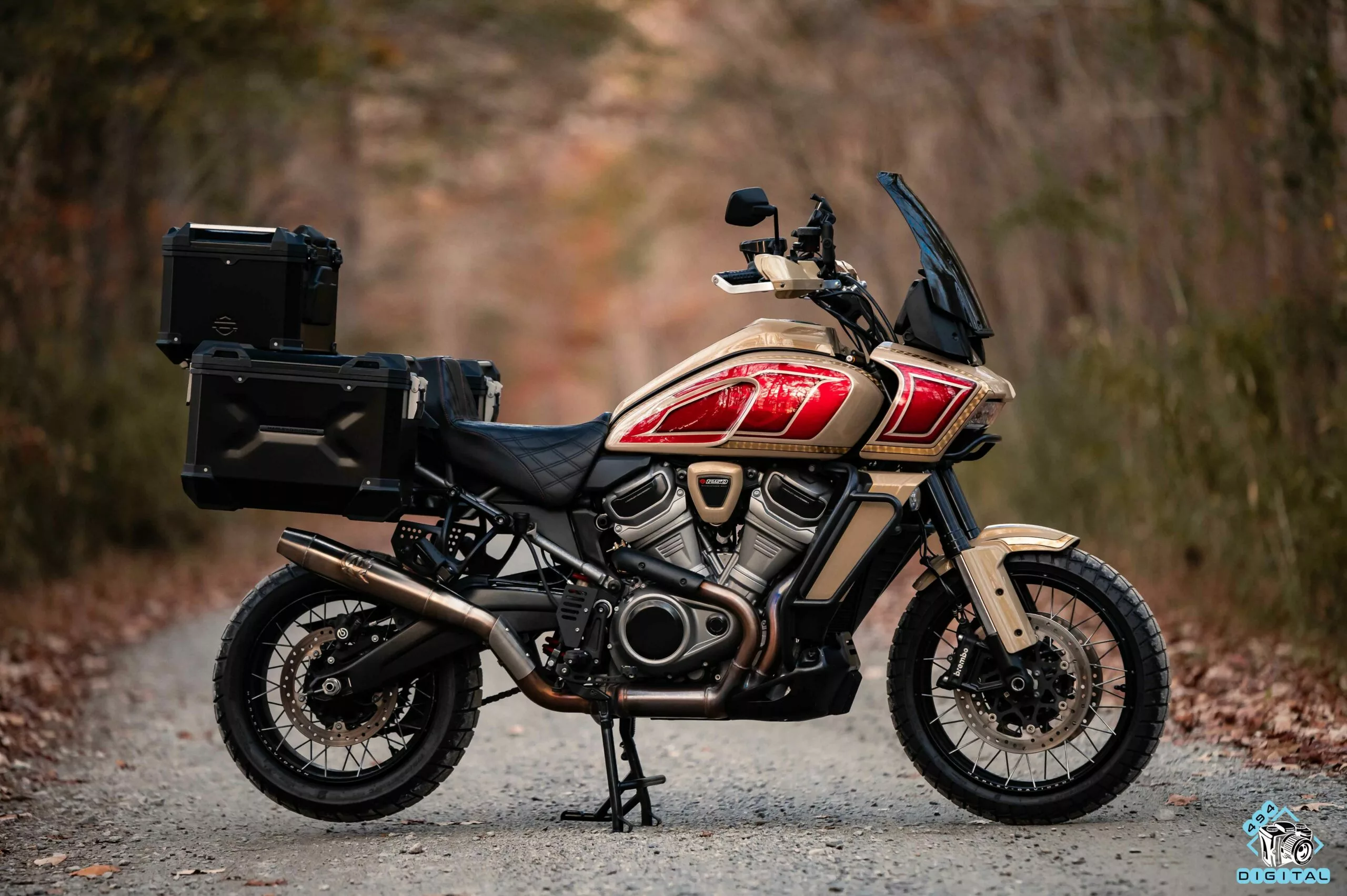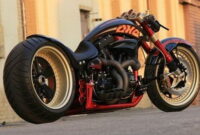Custom Wheels For Pickup Trucks: A Comprehensive Guide to Elevating Your Ride pickup.truckstrend.com
Pickup trucks are more than just utility vehicles; they are extensions of our personalities, tools for our livelihoods, and platforms for adventure. While factory wheels serve their purpose, the desire to stand out, enhance performance, or tackle more challenging terrains often leads truck owners down the exciting path of custom wheels. Custom wheels for pickup trucks are a transformative upgrade, offering a blend of aesthetic appeal, improved functionality, and a unique expression of individuality.
This comprehensive guide will delve into the world of custom wheels for pickup trucks, exploring everything from the benefits and essential specifications to selection tips, installation considerations, and a detailed look at the investment involved. Whether you’re aiming for a rugged off-road beast, a sleek street cruiser, or a show-stopping custom build, understanding the nuances of custom wheels is the first step to achieving your vision.
Custom Wheels For Pickup Trucks: A Comprehensive Guide to Elevating Your Ride
The Allure of Custom Wheels for Pickup Trucks
At its core, a custom wheel is any wheel that replaces the original equipment manufacturer (OEM) wheels on your pickup truck. This seemingly simple change unlocks a world of possibilities, making it one of the most popular aftermarket modifications. The importance and relevance of custom wheels stem from several key factors:
- Aesthetics and Personalization: This is often the primary driver. Custom wheels come in an astounding array of designs, finishes, and sizes, allowing truck owners to dramatically alter their vehicle’s appearance. From aggressive deep-dish designs to classic polished chrome or stealthy matte black, wheels are the ultimate fashion statement for your truck.
- Performance Enhancement: Beyond looks, custom wheels can improve handling, braking, and even fuel efficiency. Lighter wheels reduce unsprung weight, leading to better suspension response and a more agile feel. Different offsets and widths can also accommodate larger tires, boosting traction and off-road capability.
- Durability and Strength: Many aftermarket wheels are engineered with specific purposes in mind, such as heavy-duty hauling, extreme off-roading, or racing. This often translates to superior materials and construction methods compared to standard OEM wheels, offering enhanced durability under demanding conditions.
- Accommodating Upgrades: Lifting your truck or installing larger brakes often necessitates larger wheels to maintain proper clearance and function. Custom wheels provide the necessary dimensions and offsets to integrate these modifications seamlessly.

Why Go Custom? Benefits Beyond the Bling
The advantages of upgrading to custom wheels extend far beyond mere visual appeal. Understanding these benefits can help you justify the investment and make informed decisions.
- Enhanced Visual Appeal: As mentioned, custom wheels are an instant facelift for any truck. They allow you to differentiate your vehicle from the countless others on the road, reflecting your personal style and preferences.
- Improved Handling and Ride Quality: Lighter aftermarket wheels reduce the "unsprung weight" (weight not supported by the suspension), allowing the suspension to react more quickly to road imperfections. This can lead to a smoother ride and more responsive handling.
- Better Tire Fitment and Performance: Custom wheels enable you to run wider or taller tires, which can significantly improve grip, stability, and off-road traction. This is especially crucial for trucks used for towing, hauling, or serious off-roading.
- Increased Durability and Load Capacity: Many custom wheels, particularly those designed for heavy-duty or off-road use, are built to higher strength standards than OEM wheels. This means they can withstand more abuse and often have higher load ratings, crucial for trucks that frequently tow or carry heavy loads.
- Potential Resale Value: A well-chosen set of custom wheels, especially those from reputable brands, can add value to your truck, making it more attractive to potential buyers in the used market.

Decoding the Jargon: Key Wheel Specifications You Need to Know

Choosing the right custom wheels requires understanding several critical specifications. Getting these wrong can lead to fitment issues, rubbing, or even unsafe driving conditions.
- Diameter (e.g., 17", 20", 22"): This is the measurement across the wheel face, from edge to edge. Larger diameters often mean less tire sidewall, which can improve steering response but reduce ride comfort.
- Width (e.g., 8", 9", 10"): The measurement from bead seat to bead seat, indicating how wide the tire can be mounted. Matching the wheel width to your chosen tire width is crucial for proper tire seating and performance.
- Bolt Pattern (PCD – Pitch Circle Diameter): This specifies the number of bolt holes and the diameter of the imaginary circle on which they lie (e.g., 6×139.7mm or 5×5.5"). It’s absolutely critical that your new wheels match your truck’s bolt pattern.
- Offset (e.g., +20mm, 0mm, -12mm): This is the distance from the wheel’s mounting surface to the wheel’s centerline.
- Positive Offset: The mounting surface is closer to the outside of the wheel, pulling the wheel inward towards the vehicle.
- Zero Offset: The mounting surface is exactly at the wheel’s centerline.
- Negative Offset: The mounting surface is closer to the inside of the wheel, pushing the wheel outward from the vehicle (creating a "deeper" look).
Offset significantly impacts how far the wheel protrudes or tucks into the wheel well and is crucial for clearance with suspension components and fenders.
- Backspacing (e.g., 5.5", 6"): The distance from the wheel’s mounting surface to the back edge of the wheel. Backspacing and offset are directly related; knowing one allows you to calculate the other. Many custom wheel companies use backspacing for fitment recommendations, especially for lifted trucks.
- Center Bore: The hole in the center of the wheel that fits over the hub of the vehicle. It’s best to have a wheel that is "hub-centric" (matches the hub diameter exactly) or use hub rings to ensure the wheel is perfectly centered on the hub, preventing vibrations.
- Load Rating: The maximum weight a single wheel is designed to safely support. For pickup trucks, especially those used for towing or hauling, ensuring the wheels’ combined load rating exceeds the truck’s Gross Axle Weight Rating (GAWR) is paramount for safety.
Types of Custom Wheels: Style Meets Function
Custom wheels are available in a vast array of materials, construction methods, and styles, each offering unique characteristics.
Materials:
- Steel Wheels: Often the most affordable and durable, but also the heaviest. Commonly found on basic work trucks or as robust off-road options due to their ability to withstand impacts and be easily repaired.
- Cast Alloy Wheels: The most common type of aftermarket wheel. Aluminum alloy is melted and poured into a mold. They are lighter than steel, come in countless designs, and are generally affordable. However, they can be prone to cracking under severe impact.
- Flow-Formed (or Rotary Forged) Wheels: A hybrid process where a cast wheel is spun and heated while rollers press and stretch the barrel. This creates a denser, stronger, and lighter wheel than traditional casting, offering a good balance of performance and cost.
- Forged Wheels: The strongest and lightest wheels, made from a solid block of aluminum that is pressed under immense pressure. This process aligns the grain structure of the metal, resulting in exceptional strength-to-weight ratios. They are significantly more expensive but offer unparalleled performance and durability.
Styles and Finishes:
- Chrome: Classic, highly reflective, and luxurious. Requires regular maintenance to prevent pitting and rust.
- Polished: Similar to chrome but without the plating, often a highly polished aluminum. Can be clear-coated or require regular polishing to maintain shine.
- Painted/Powder-Coated: The most versatile in terms of color and finish. Matte black, gloss black, gunmetal, bronze, and custom colors are popular. Powder coating offers a durable finish.
- Milled/Machined: Features intricate patterns or accents cut into the wheel face, often contrasting with a painted or black finish.
- Multi-Piece Wheels: Consist of two or three separate components (barrel, face, inner lip) bolted together. Allows for more complex designs, custom offsets, and easier repair, but are generally more expensive and heavier.
The Selection Process: Choosing the Right Custom Wheels for Your Truck
Selecting the perfect custom wheels involves more than just picking a design you like. Follow these steps for a successful upgrade:
- Define Your Goals: Are you looking purely for aesthetics? Improved off-road performance? Better towing stability? Your primary goal will guide your choices in size, material, and offset.
- Determine Your Truck’s Specifications: Know your truck’s exact year, make, model, trim, and whether it has any lift or leveling kits installed. This information is crucial for ensuring proper fitment.
- Research Fitment: Use online fitment guides, consult with reputable wheel and tire shops, or join truck-specific forums. Pay close attention to recommended wheel diameters, widths, offsets, and backspacing for your truck and any planned tire size.
- Consider Your Tires: Wheels and tires work in tandem. If you plan to upgrade tire size, choose wheels that are appropriately sized to safely mount those tires. Larger tires often necessitate specific wheel offsets to avoid rubbing.
- Factor in Budget: Custom wheels range widely in price. Set a realistic budget that includes the cost of wheels, tires, TPMS sensors (if needed), mounting, balancing, and potential installation costs.
- Read Reviews and Check Brand Reputation: Stick with well-known and reputable wheel manufacturers. Read reviews from other truck owners to gauge quality, durability, and customer satisfaction.
- Visualize the Look: Many online configurators allow you to "try on" different wheels on a digital representation of your truck. This can be a great way to see how various styles and finishes will look.
Installation and Maintenance: Protecting Your Investment
Once you’ve chosen your custom wheels, proper installation and ongoing maintenance are crucial for their longevity and your safety.
- Professional Installation Recommended: While some DIY enthusiasts might tackle it, professional installation by a shop experienced with custom wheels is highly recommended. They have the specialized equipment for mounting large tires, balancing, and ensuring correct torque specs.
- TPMS Sensors: Modern trucks use Tire Pressure Monitoring System (TPMS) sensors. Your new wheels will need compatible sensors, which can be transferred from your old wheels or purchased new. These typically need to be reprogrammed to your truck.
- Torque Specifications: Always ensure lug nuts are torqued to the manufacturer’s recommended specifications using a torque wrench. Over-tightening can damage studs or wheels, while under-tightening can lead to wheels coming loose. Re-check torque after the first 50-100 miles.
- Regular Cleaning: Clean your custom wheels regularly with appropriate wheel cleaners (acid-free for most finishes) to prevent brake dust and road grime from corroding the finish.
- Tire Rotation and Balancing: Just like with OEM wheels, regular tire rotation (every 5,000-7,500 miles) helps ensure even tire wear. Re-balancing might be needed if you notice vibrations.
Potential Challenges and Solutions
While custom wheels offer numerous benefits, there are a few potential hurdles to be aware of:
- Rubbing Issues: Aggressive offsets or excessively large tires can cause rubbing against fenders or suspension components, especially when turning or hitting bumps.
- Solution: Carefully research fitment, consider minor trimming of plastic liners, or install a lift/leveling kit.
- Speedometer Error: Changing tire diameter (usually when going significantly larger) will affect your speedometer and odometer readings.
- Solution: Recalibrate your truck’s computer using an aftermarket programmer or a dealership service.
- Warranty Concerns: Some dealerships may argue that aftermarket modifications, including wheels, could void parts of your truck’s warranty if they are directly linked to a failure.
- Solution: Choose reputable brands and professional installation. Understand your truck’s warranty terms beforehand.
- Cost: Quality custom wheels are an investment.
- Solution: Plan your budget, consider financing options if available, and view it as an enhancement that adds value and enjoyment to your truck.
Price Table: Understanding the Investment in Custom Wheels
The cost of custom wheels for pickup trucks varies significantly based on material, construction, brand, size, and finish. The table below provides typical price ranges for a set of four wheels, excluding tires, mounting, balancing, or TPMS sensors.
| Wheel Type/Material | Size Range (Diameter) | Typical Price Range (Set of 4, USD) | Key Factors Influencing Price |
|---|---|---|---|
| Steel Wheels | 15" – 18" | $400 – $800 | Basic utility, durability, simple finish, heavier weight. |
| Cast Alloy Wheels | 17" – 24" | $800 – $2,500 | Design complexity, brand reputation, finish type (e.g., chrome vs. painted), load rating. |
| Flow-Formed Wheels | 18" – 24" | $1,500 – $4,000 | Lighter weight and stronger than cast, improved manufacturing process, performance-oriented. |
| Forged Wheels | 18" – 26"+ | $4,000 – $10,000+ | Premium material, custom designs, extreme strength/lightness, luxury brands, bespoke options. |
| Specialty/Luxury | 20" – 30"+ | $5,000 – $20,000+ | Exotic finishes, multi-piece construction, limited editions, highly customized, niche brands. |
Note: These are general ranges. Prices can fluctuate based on market conditions, promotions, and specific vendor pricing. Always get a detailed quote for your specific choices.
Frequently Asked Questions (FAQ)
Q1: Will custom wheels void my truck’s warranty?
A1: Generally, no. The Magnuson-Moss Warranty Act prevents manufacturers from voiding a warranty solely because aftermarket parts were used, unless they can prove the aftermarket part directly caused the failure. However, if an issue arises that can be directly attributed to the custom wheels (e.g., wheel bearings fail due to extreme offset), that specific repair might not be covered. Always check with your dealership for their specific policy.
Q2: Do I need new tires when I get custom wheels?
A2: It depends. If you’re keeping the same wheel diameter and width, you might be able to transfer your existing tires if they are in good condition. However, if you’re changing wheel diameter or width significantly, or planning to run larger tires, you will almost certainly need new tires.
Q3: How do I know what size custom wheels will fit my truck?
A3: The best way is to consult your truck’s owner’s manual for OEM specifications, use online fitment guides provided by reputable wheel retailers, or visit a professional wheel and tire shop. They can determine your truck’s bolt pattern, offset, and backspacing requirements, and advise on maximum tire sizes.
Q4: What’s the difference between positive, zero, and negative offset?
A4: Offset dictates how far your wheel sits relative to the hub. Positive offset tucks the wheel inward, negative offset pushes it outward (for a wider stance), and zero offset means the mounting surface is centered. This significantly impacts clearance with brakes, suspension, and fenders.
Q5: Are larger wheels always better for off-roading?
A5: Not necessarily. While larger diameter wheels can accommodate bigger tires for increased ground clearance, very large wheels (20"+) with thin sidewall tires can be more vulnerable to damage off-road. Smaller diameter wheels (17"-18") allow for more tire sidewall, which provides better cushioning, flexibility, and a larger "airbag" for airing down on trails, improving traction and ride comfort.
Q6: How often should I re-torque my lug nuts after installing new wheels?
A6: It’s highly recommended to re-torque your lug nuts after the first 50-100 miles of driving. This is because the new wheels may settle slightly, and the initial torque might loosen. After that, check them periodically, especially after tire rotations.
Conclusion: Drive Your Vision
Custom wheels for pickup trucks are a powerful statement of style and a significant upgrade in performance and functionality. They offer an unparalleled opportunity to personalize your vehicle, enhancing its aesthetics, improving handling, and boosting its capabilities for work or play.
From understanding critical specifications like offset and bolt patterns to choosing between robust steel and lightweight forged alloys, the journey into custom wheels is a rewarding one. While the initial investment and the complexities of fitment might seem daunting, the result is a truck that not only looks incredible but also performs precisely to your needs. With careful research, professional advice, and a clear vision, you can transform your pickup into a truly unique and highly capable machine. Drive your vision, one custom wheel at a time.



